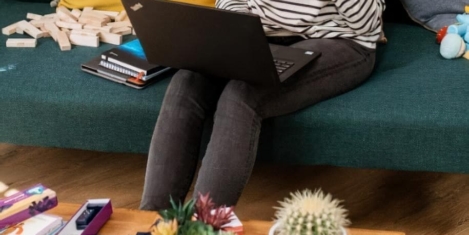To provide the best experiences, we use technologies like cookies to store and/or access device information. Consenting to these technologies will allow us to process data such as browsing behaviour or unique IDs on this site. Not consenting or withdrawing consent, may adversely affect certain features and functions.
The technical storage or access is strictly necessary for the legitimate purpose of enabling the use of a specific service explicitly requested by the subscriber or user, or for the sole purpose of carrying out the transmission of a communication over an electronic communications network.
The technical storage or access is necessary for the legitimate purpose of storing preferences that are not requested by the subscriber or user.
The technical storage or access that is used exclusively for statistical purposes.
The technical storage or access that is used exclusively for anonymous statistical purposes. Without a subpoena, voluntary compliance on the part of your Internet Service Provider, or additional records from a third party, information stored or retrieved for this purpose alone cannot usually be used to identify you.
The technical storage or access is required to create user profiles to send advertising, or to track the user on a website or across several websites for similar marketing purposes.
 As a new year comes into view, many SMEs in the UK are concerned about the mental health of their staff as much as their ability to drive revenue, new research claims. The new survey conducted by Hiscox, asked 1,000 SME business decision-makers from across the UK about their experiences during 2020 and their subsequent outlook into 2021. (more…)
As a new year comes into view, many SMEs in the UK are concerned about the mental health of their staff as much as their ability to drive revenue, new research claims. The new survey conducted by Hiscox, asked 1,000 SME business decision-makers from across the UK about their experiences during 2020 and their subsequent outlook into 2021. (more…)








 ‘Stress by Sector’ data released by
‘Stress by Sector’ data released by 
 Workers in Britain are facing inequality due to a stark difference in employers’ approaches to flexible working, with nearly half (46 percent) of employees saying they do not have flexible working arrangements – such as flexi-time, part-time working, compressed hours or job shares – in their current role. This is according to new research from the
Workers in Britain are facing inequality due to a stark difference in employers’ approaches to flexible working, with nearly half (46 percent) of employees saying they do not have flexible working arrangements – such as flexi-time, part-time working, compressed hours or job shares – in their current role. This is according to new research from the 
 While workers in the UK have been working from home, if they can, for almost a year, a third say they miss commuting, claims research from recruiter
While workers in the UK have been working from home, if they can, for almost a year, a third say they miss commuting, claims research from recruiter 
 A new 30-storey office tower with green walls and roof nestling next to London’s walkie talkie building has been approved by the
A new 30-storey office tower with green walls and roof nestling next to London’s walkie talkie building has been approved by the 
 A new generation of long-term homeworkers created by COVID-19 is at risk physically and mentally through inadequate employer support, claims research by
A new generation of long-term homeworkers created by COVID-19 is at risk physically and mentally through inadequate employer support, claims research by 
 Mass redundancies across the UK are having a huge impact on the discretionary effort employees are willing to undertake on behalf of their employer, according to research from career transition firm
Mass redundancies across the UK are having a huge impact on the discretionary effort employees are willing to undertake on behalf of their employer, according to research from career transition firm 
 New research from Opinion Matters, commissioned by
New research from Opinion Matters, commissioned by 
 A new report of over 1,000 small business owners and decision makers by
A new report of over 1,000 small business owners and decision makers by 
 With data science lauded as the answer to COVID-19 recovery, organisations are planning to significantly increase their data science headcount this year. This is according to the latest research from
With data science lauded as the answer to COVID-19 recovery, organisations are planning to significantly increase their data science headcount this year. This is according to the latest research from 
 Expenses app,
Expenses app, 







